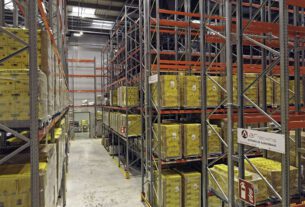We work in a competitive environment and industry, so it’s easy to become consumed by the bottom line and operational efficiency.
Despite – or perhaps because of – the challenges we face in South Africa on a daily basis, I firmly believe that safety and compliance should be the number one priority for businesses operating in this industry.
This isn’t just a matter of ticking boxes or meeting regulatory requirements either; it’s about ensuring the well-being of our people, safeguarding our reputation, and contributing to a safer world.
Safety first and foremost
Safety should never be an afterthought, especially when dealing with heavy vehicles and the complex logistics involved. The road is a dynamic environment, where split-second decisions can mean the difference between life and death. Ensuring the safety of our drivers, passengers, and other road users must be our paramount concern.
South Africa, like many countries, has a high rate of road accidents, and commercial vehicles are frequently involved. This should be a sobering reminder of the importance of safety in our industry. Our drivers spend long hours on the road, facing diverse and often challenging conditions. Fatigue, distractions, and external pressures can compromise their attention and judgment. It is our duty to mitigate these risks through comprehensive safety protocols and regular training.
A moral and legal obligation
Compliance with safety and environmental regulations is not just a legal obligation but a moral one. We must uphold the highest standards of ethical conduct to protect our employees, customers, and the environment. Non-compliance can result in heavy fines, legal actions, and irreparable damage to our reputation. It is paramount that we remain diligent in adhering to local and international regulations, such as the National Road Traffic Act and international standards.
Moreover, being compliant allows us to compete on a level playing field. When we follow the rules, we create an atmosphere of fair competition, ensuring that all players are subjected to the same standards. This promotes a healthy and thriving industry that rewards competence and innovation rather than cutting corners to save costs.
Building trust and reputation
Trust is the cornerstone of any successful business. In the transport and logistics industry, it’s not just about moving goods from one place to another; it’s about the reliability of that service. Safety and compliance are the building blocks of trust.
In order to be fully compliant for delivering dangerous goods, a service provider must ensure, among other things, that:
1. Vehicles used are 100% roadworthy.
2. Vehicles have valid permits to carry dangerous goods.
3. Drivers are competent and have valid dangerous goods paperwork.
4. Notification to the various municipalities and authorities is arranged in advance to make them aware of the type of dangerous goods being transported in their areas, or passing through their areas.
5. Drivers have valid and updated route plans.
Commitment to safety and compliance also reflects positively on corporate image. In an age of transparency and instant information sharing, a single accident or violation can tarnish a company’s reputation. Conversely, a strong safety record and commitment to compliance can enhance a brand and open doors to new opportunities.
Sustainability and responsibility
The world is rapidly changing, and environmental responsibility is no longer optional. A commitment to sustainability, guided by compliance with environmental regulations, is essential for transport and logistics companies. With global climate concerns and a growing focus on green logistics, embracing eco-friendly practices isn’t just a PR move – it’s a strategic necessity.
Our industry plays a significant role in reducing greenhouse gas emissions, and efforts to adhere to environmental standards can have a profound impact. By adopting greener technologies, optimising routes, and improving fuel efficiency, we can collectively lower carbon footprint while also reducing operational costs.
Closing thoughts
Safety and compliance are the twin pillars upon which the transport and logistics industry stands. They are non-negotiable, defining our corporate identities as service providers, and guiding our every action.
In South Africa, the consequences of neglecting safety and compliance are simply too severe to ignore. We are not only stewards of the cargo we transport, but also of the lives that depend on us.
As we navigate the challenges and opportunities of the ever-evolving transport and logistics industry, we must remember that our true wealth lies not only in profits, but in the safety and security we provide to our people and the environment.
By keeping safety and compliance at the forefront of our operations, we can ensure a sustainable, ethical, and prosperous future for our company, our industry, and the world at large.





